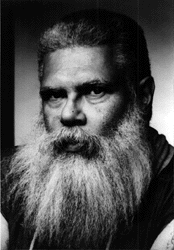


Mark Dery: Have you ever felt, as one of the few blacks writing SF, the pressure to write science fiction deeply inscribed with the politics of black nationalism?
Samuel R. Delany: The answer there depends on what your question means. If you mean: Do I feel that, deep within my work, I’ve situated material that encourages the reader’s engagement with some of the political questions that the disenfranchised people in this country, victimized by oppression and an oppressive discourse based on the evil and valorized notion of nationhood and its hideous white — no other color — underbelly, imperialism, must face but cannot overcome without internalizing some of the power concepts and relationships inescapably entailed in the notion of “nation” itself? Well if that’s what you mean, my answer is: Damned right I have! Certainly from my 1974 novel Dhalgren on, that’s been a major plank, reason, and justification in, of, and for my project.
If, on the other hand, you mean: Do I feel that the surface of my work must blatantly display signs of solidarity with those who, through the real despairs imposed on them by oppression, have momentarily abandoned any critique of the presuppositions of nationhood and its internal contradictions, and that, through such signs in my work, I endeavor to speak back to those people in a voice indistinguishable from theirs, confirming what in them cannot question, what in them does not have the luxury of being able to critique the grounds on which they stand — a confirmation which, while I acknowledge that its project is an endlessly practical and necessary one, and one which I can usually support at some level of abstraction? Well, if that’s what you mean, then, alas, the answer is: No. That’s not part of my project — even though I often approve of it in others. Still, it’s just not what I do best.
— “Black to the Future,” Flame Wars (Durham & London: Duke University Press, 1994), 188-9
i rushed over to amazon last night and snagged a copy of ‘flame wars’ (for two bucks) on the strength of that brief excerpt (and the amazon review of course!) thanks for the google book link, too. i can get an early start as i wait for the object to arrive…
Yeah, the rest of the interview(s) continues apace. Some great stuff in there. Delany’s well worth reading, in all forms. Still haven’t been able to penetrate Dhalgren myself, but I really enjoyed Tales of Neveryon (another 2 buck book!) when I breezed through it last year.
ah. love him. although Dhalgren is tough going and his porn is way beyond me.
but damn, he knows what’s up
on a related note, a tribute to Octavia Butler here: http://diaryofananxiousblackwoman.blogspot.com/2008/02/remembering-those-we-recently-lost.html
although it doesn’t really get at WHAT it was that is so amazing about her work, it is clear that she is gone far too soon.
I confess: I haven’t actually read any of Delany’s pr0n, though I’ve found some of Steven Shaviro’s writing on the subject really fascinating.
I really need to read some Butler. Still haven’t dug into that oeuvre at all. I see that that blogpost (nice timing!) has a good list of books of hers to check out. Any recs of your own? Good places to start? I recently picked up Parable of the Sower but haven’t cracked into it.
Parable and all that series are good but incredibly bleak. Post-apocalyptic and very very sad. I read them but I probably won’t read them again.
Her Patternmaster series I don’t like so much – she explores some interesting issues but I think it’s kind of Heinlein-y. Actually maybe it’s like the logical extension of Heinlein, revealing (reveling) in creepy control fantasies.. I like the Xenogenesis trilogy because of what she does with the genre. the first one (Dawn) is particularly good.
actual control fantasies isn’t what I mean. More a kind of focused exploration of hyper-competitive behavior
I will eventually get to some actual Delany & Butler, but I’m pleased to have come across Flame Wars. Recently, I’ve been going baCK and listening to your fellow Bostonian Mike Ladd’s Easy Listening 4 Armageddon & Welcome to the AfterFuture… some pages are excluded from the Google Book but it’s alright.
Oh, and I saw Greg Tate (conducting/playing guitar) performed with Burnt Sugar at CBGBs in 2001(?)